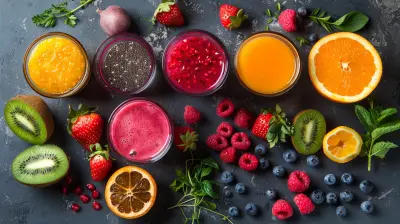The Role of Fiber in a Vegan Diet: Key Benefits and Tips
31 May 2025
Fiber is one of the most important yet underrated nutrients in a vegan diet. While many people focus on protein, healthy fats, and vitamins, fiber often doesn’t get the attention it deserves. But here’s the thing—fiber plays a crucial role in digestion, weight management, heart health, and even blood sugar control.
If you're following a plant-based diet, you're likely getting plenty of fiber, but are you making the most of it? In this article, we’ll dive into everything you need to know about fiber, why it’s essential in a vegan diet, and how to maximize its benefits.
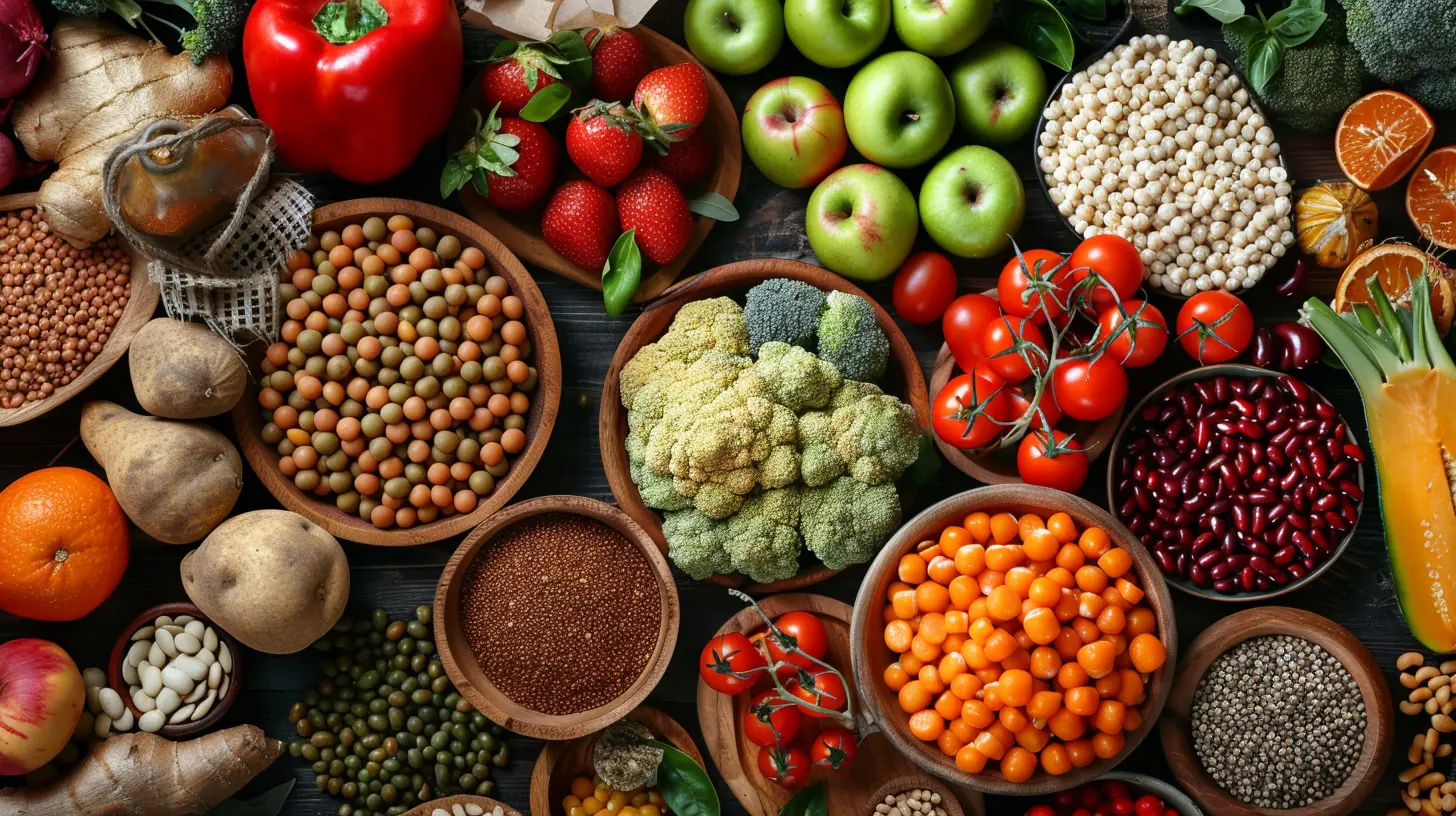
What Is Fiber, and Why Does It Matter?
Fiber is a type of carbohydrate that your body can’t digest. Unlike sugars and starches, fiber doesn’t break down and get absorbed in the small intestine. Instead, it travels through your digestive system, doing a lot of good along the way.There are two main types of fiber:
1. Soluble Fiber – Dissolves in water to form a gel-like substance. It helps lower cholesterol, regulate blood sugar, and keep you full. Found in oats, beans, lentils, fruits, and flaxseeds.
2. Insoluble Fiber – Doesn’t dissolve in water and adds bulk to stool, promoting regular bowel movements. Found in whole grains, nuts, seeds, and vegetables.
Both types are essential, and a well-balanced vegan diet provides plenty of both.
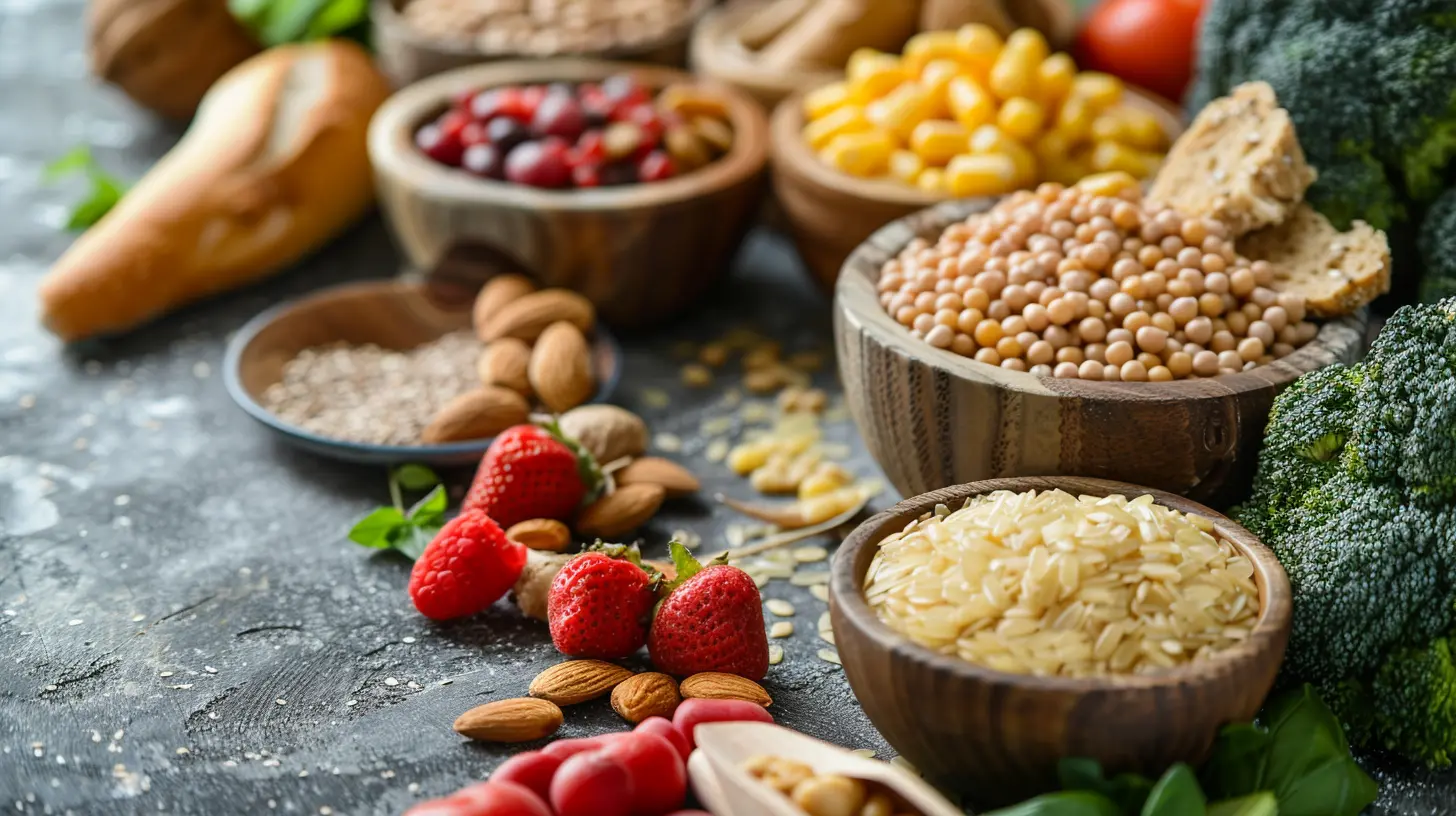
The Health Benefits of Fiber in a Vegan Diet
1. Supports a Healthy Gut
Ever heard the saying, "A happy gut equals a happy life?" Well, fiber is a major player in gut health. It acts as food for beneficial gut bacteria, helping them thrive. In turn, these bacteria produce short-chain fatty acids, which support digestion and reduce inflammation.A fiber-rich diet can also reduce the risk of irritable bowel syndrome (IBS) and constipation by keeping things moving smoothly.
2. Aids in Weight Management
Trying to lose or maintain weight? Fiber is your best friend. Because it slows digestion, it helps keep you full for longer, reducing overall calorie intake. That means fewer cravings and less mindless snacking.High-fiber foods like legumes, whole grains, and vegetables have a higher volume but fewer calories, making them ideal for those watching their weight.
3. Helps Regulate Blood Sugar Levels
If you're eating a lot of processed foods, your blood sugar likely goes on a roller coaster ride—spiking and crashing all day. Fiber helps slow down the absorption of sugar into the bloodstream, preventing those extreme highs and lows.Adding fiber-rich foods like beans, whole grains, and berries to meals can help stabilize blood sugar levels, which is particularly beneficial for those with diabetes or insulin resistance.
4. Lowers Cholesterol and Promotes Heart Health
Heart disease is one of the leading causes of death worldwide. The good news? A diet high in fiber, especially soluble fiber, can help lower bad cholesterol (LDL cholesterol) and improve overall heart health.Foods like oats, flaxseeds, and legumes bind with cholesterol in the digestive system, preventing it from being absorbed into the bloodstream. This can significantly reduce the risk of heart disease and stroke.
5. Reduces the Risk of Certain Cancers
Research suggests that a high-fiber diet may lower the risk of colorectal cancer. Fiber helps move waste through the digestive system more efficiently, reducing exposure to harmful toxins.Plus, fiber-rich foods contain antioxidants, vitamins, and plant compounds that fight inflammation and support overall health.
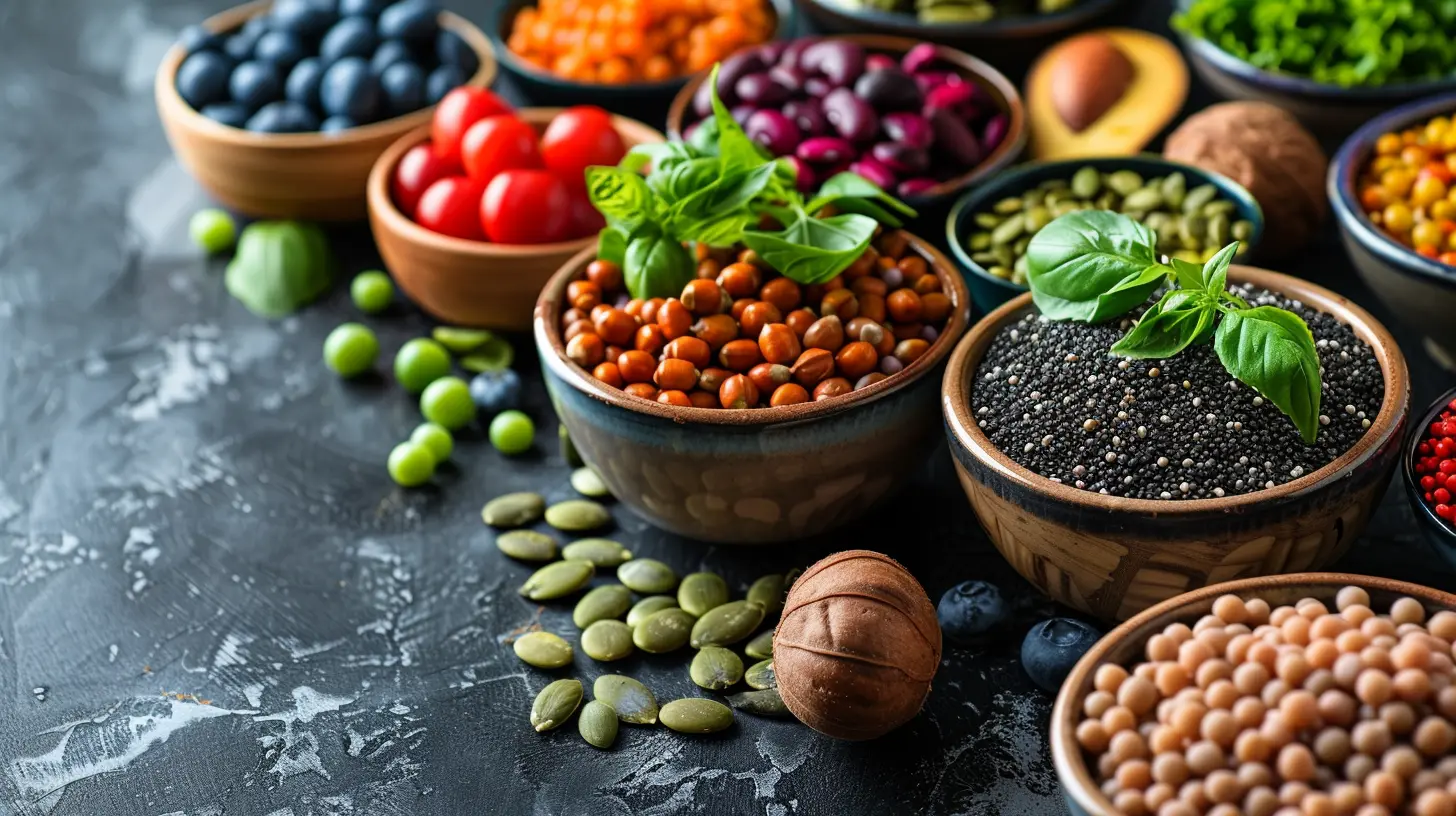
How Much Fiber Do You Need?
The recommended daily intake of fiber varies by age and gender:- Women: At least 25 grams per day
- Men: At least 38 grams per day
However, most people—especially those on a standard Western diet—fall short, barely hitting 15 grams a day. The great news? Vegans typically consume more fiber naturally due to their plant-based food choices.
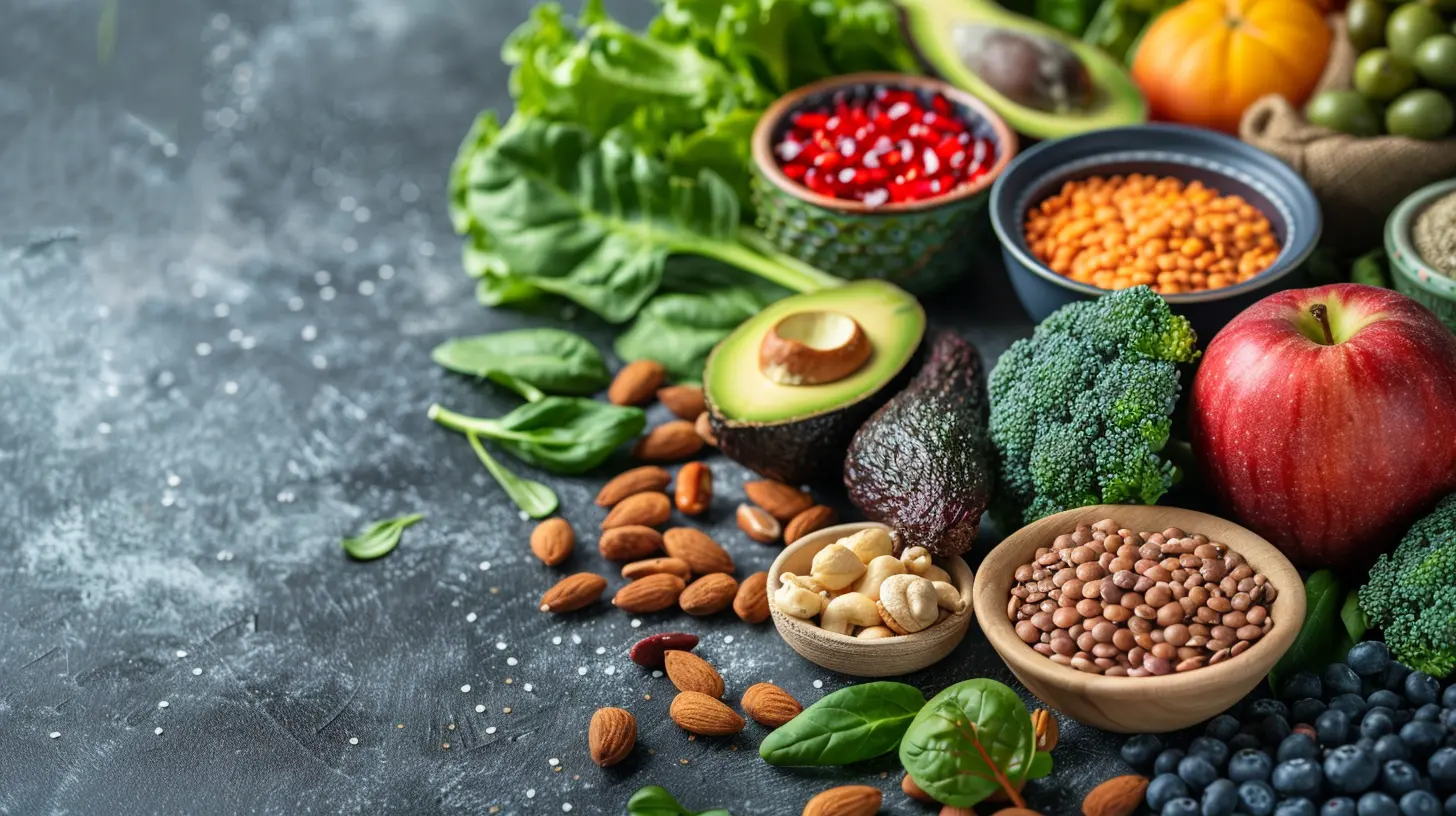
Best Vegan Sources of Fiber
If you're following a plant-based diet, you're already on the right track. But to ensure you're getting enough fiber, focus on these top sources:- Legumes: Lentils, black beans, chickpeas, and peas
- Whole grains: Brown rice, quinoa, oats, whole wheat, barley
- Vegetables: Broccoli, carrots, Brussels sprouts, leafy greens
- Fruits: Apples, pears, berries, oranges, bananas
- Nuts & Seeds: Chia seeds, flaxseeds, almonds, sunflower seeds
The more variety you include, the better!
How to Increase Fiber Intake Without Digestive Discomfort
Jumping from a low-fiber to a high-fiber diet overnight can shock your digestive system, leading to bloating and gas. To avoid this discomfort, follow these simple tips:1. Increase Fiber Gradually
If you're used to eating low-fiber foods, increase your intake slowly over a few weeks. This gives your gut time to adjust.2. Drink Plenty of Water
Fiber absorbs water as it moves through the digestive system. If you don’t drink enough fluids, it can lead to constipation. Aim for at least 8 glasses of water per day.3. Eat a Mix of Soluble and Insoluble Fiber
A balance of both fiber types ensures smooth digestion. For example, pair lentils (soluble fiber) with whole-grain rice (insoluble fiber).4. Listen to Your Body
Pay attention to how different fiber-rich foods affect you. Some people tolerate cooked vegetables better than raw ones; others may need to limit beans or cruciferous vegetables.
Common Myths About Fiber in a Vegan Diet
Myth #1: A Vegan Diet Automatically Provides Enough Fiber
While a vegan diet tends to be high in fiber, it depends on food choices. Eating too many processed vegan foods (white bread, mock meats, sweets) can still lead to fiber deficiencies. Whole, plant-based foods should make up the majority of your diet.Myth #2: Too Much Fiber Is Harmful
For most people, fiber is beneficial. However, extreme amounts combined with low water intake can cause digestive discomfort. As long as you stay hydrated and eat a variety of fiber-rich foods, you’ll be fine.Myth #3: Fiber Only Affects Digestion
While fiber is famous for aiding digestion, its benefits extend far beyond that. It supports heart health, weight management, blood sugar control, and even longevity.Final Thoughts
Fiber is a game-changer in a vegan diet, offering a wide range of health benefits, from better digestion to heart protection. Luckily, plant-based foods are naturally rich in fiber, making it easy for vegans to meet their daily needs.The key is variety and balance—eating a diverse mix of fiber-rich foods while staying hydrated and increasing intake gradually. So next time you're planning your meals, give fiber the attention it deserves—your gut (and entire body) will thank you!
all images in this post were generated using AI tools
Category:
Vegan DietAuthor:

Tiffany Foster
Discussion
rate this article
3 comments
Liora Edwards
Love fiber! It's a game-changer!
June 12, 2025 at 2:51 AM

Tiffany Foster
Thank you! Fiber really is essential for a healthy vegan diet—it supports digestion and overall well-being. Glad you enjoyed the article!
Finn Rios
Fiber: the unsung hero of the vegan diet! It's like the friend who always brings snacks to the party—essential for good vibes and smooth moves! So let's get our fiber fix and keep things flowing!
June 8, 2025 at 4:59 AM

Tiffany Foster
Absolutely! Fiber is crucial for digestive health and keeps us feeling full and satisfied. Let's celebrate its benefits for a thriving vegan lifestyle!
Sari Kirkpatrick
Great insights! Fiber is essential for health. Thanks!
June 3, 2025 at 2:34 AM

Tiffany Foster
Thank you for your kind words! I'm glad you found the insights helpful!
